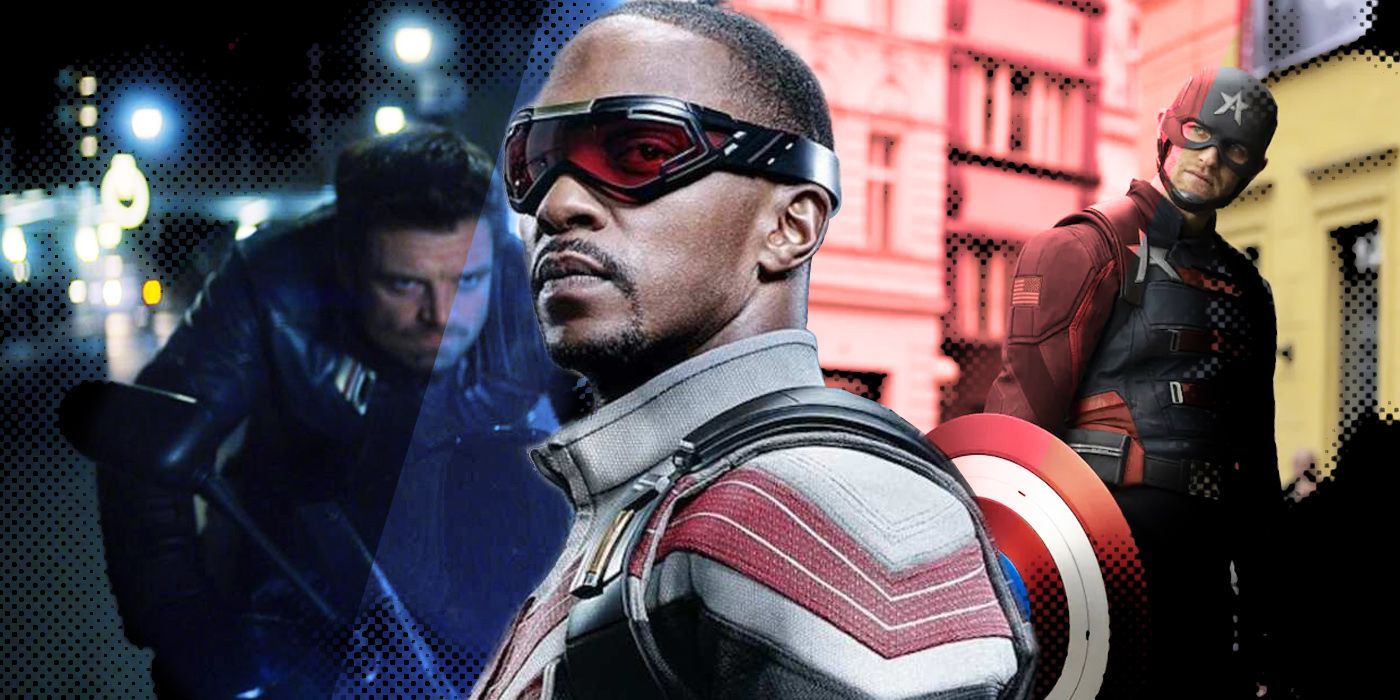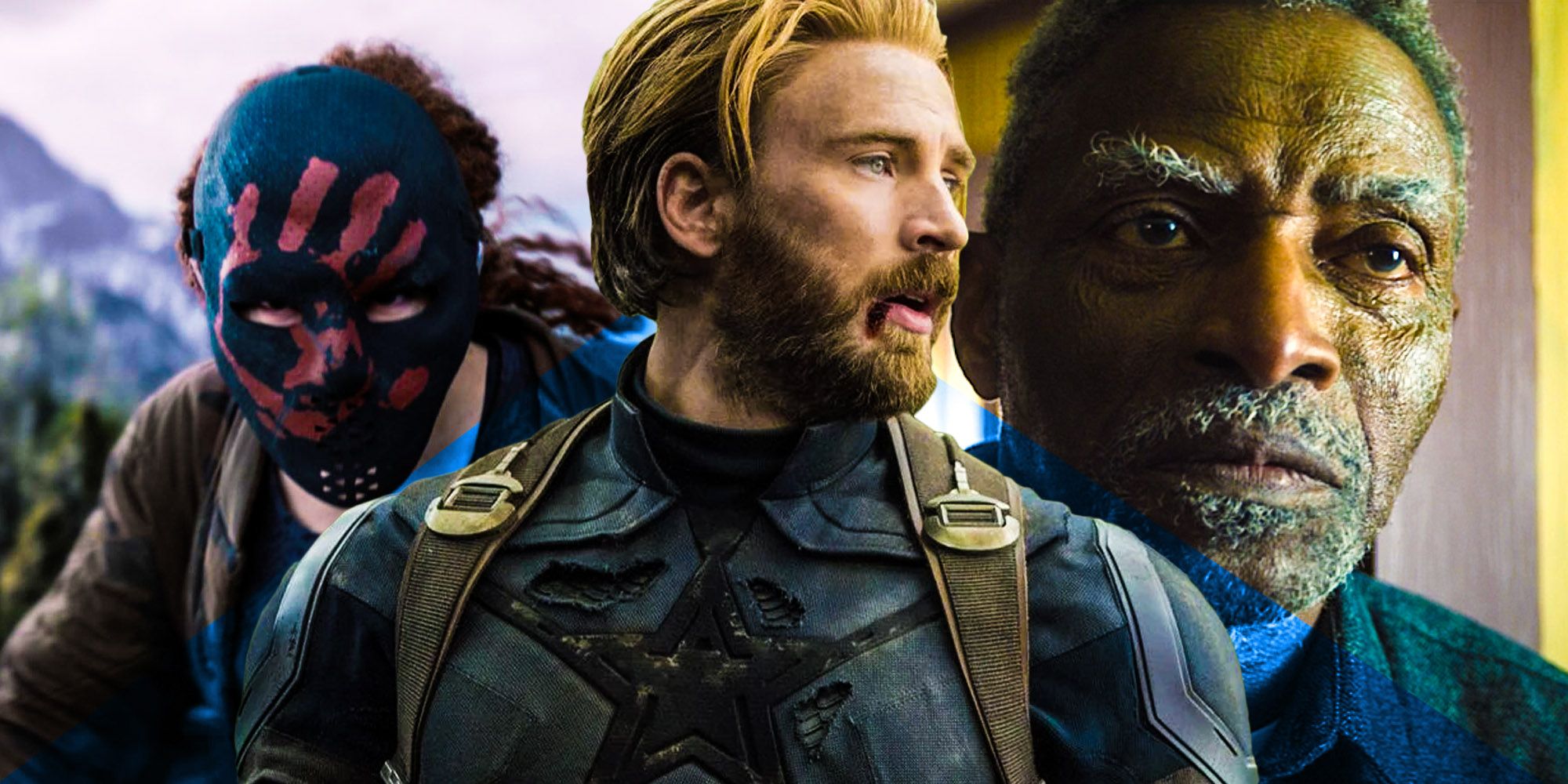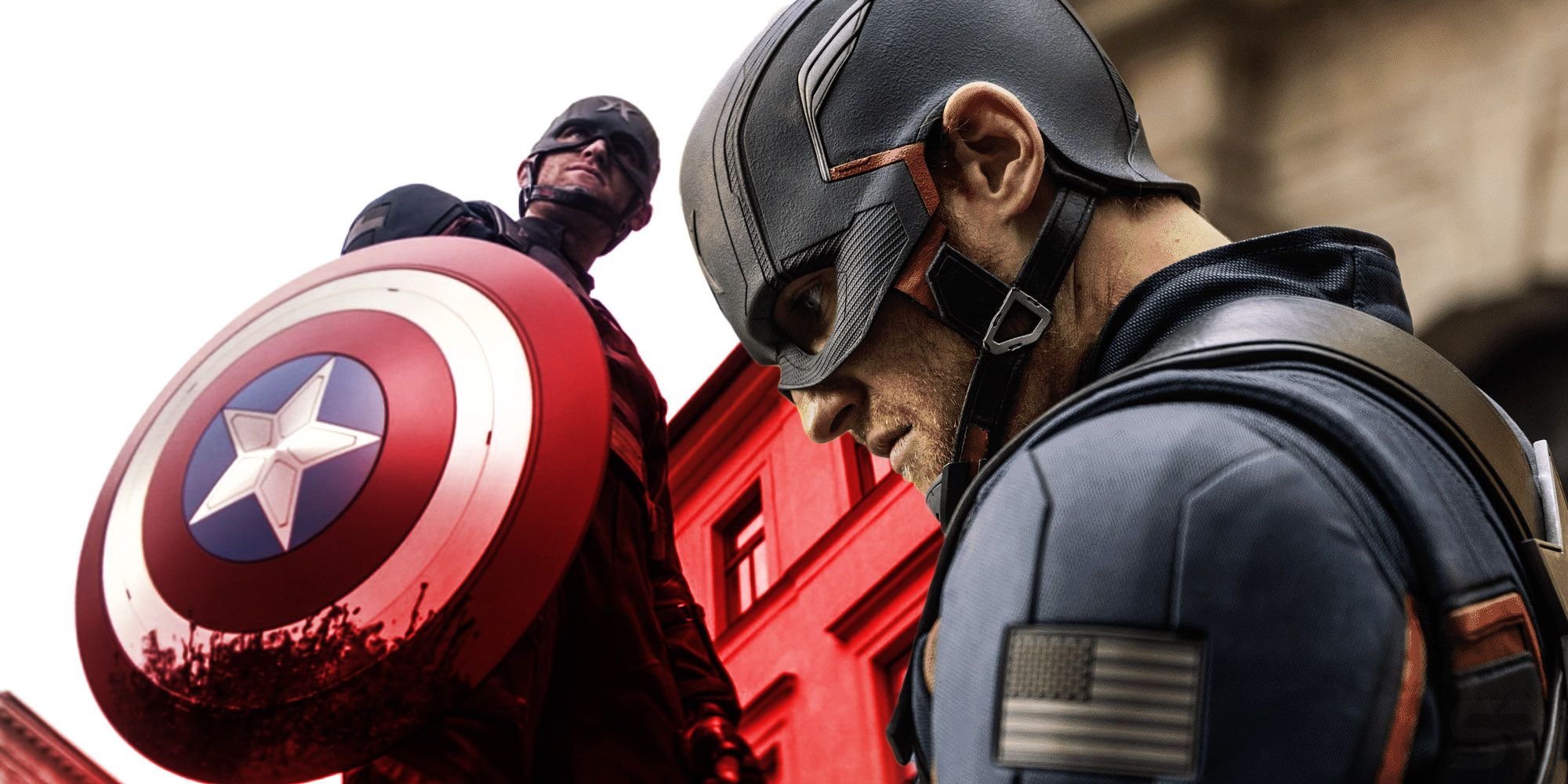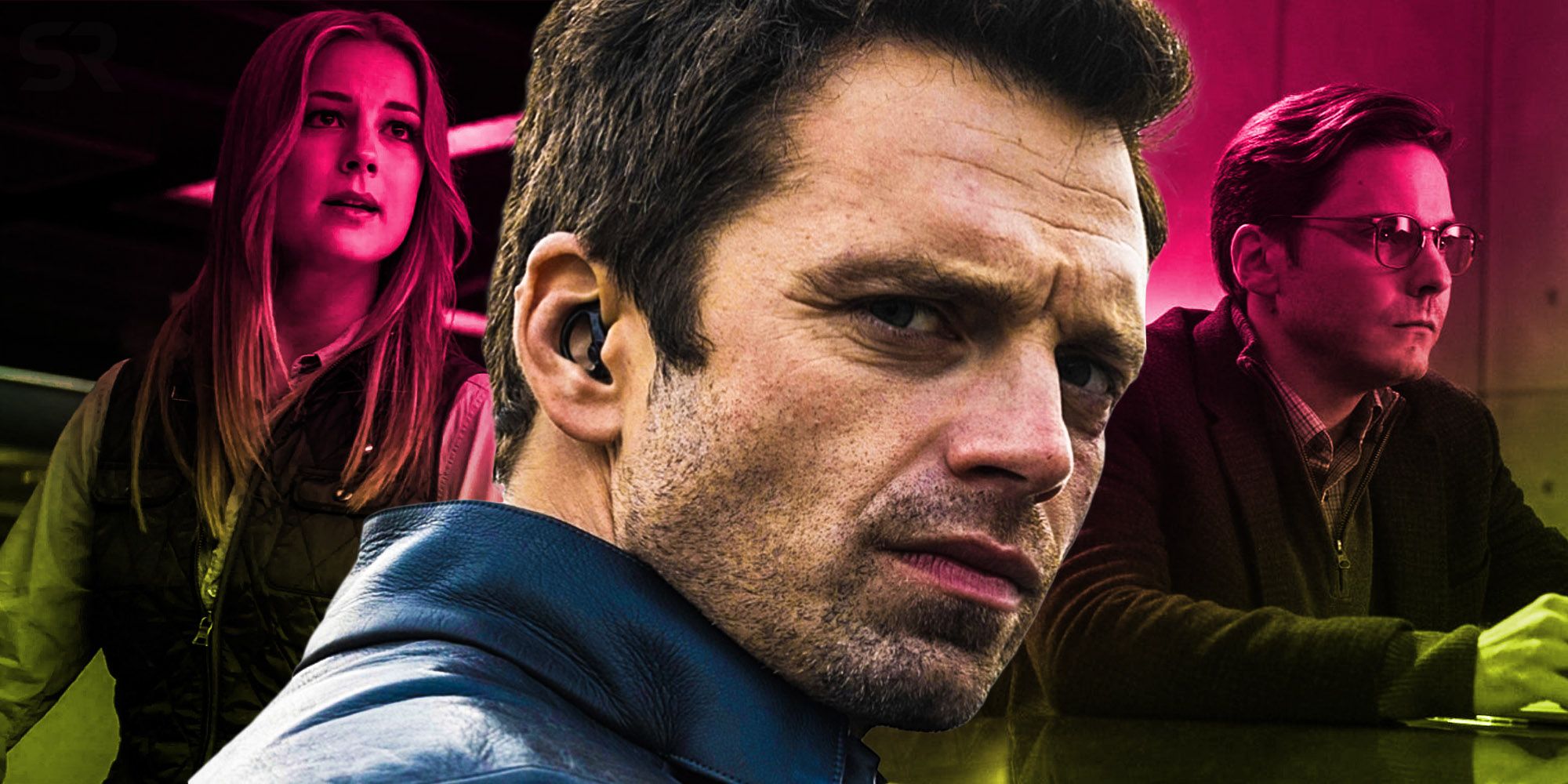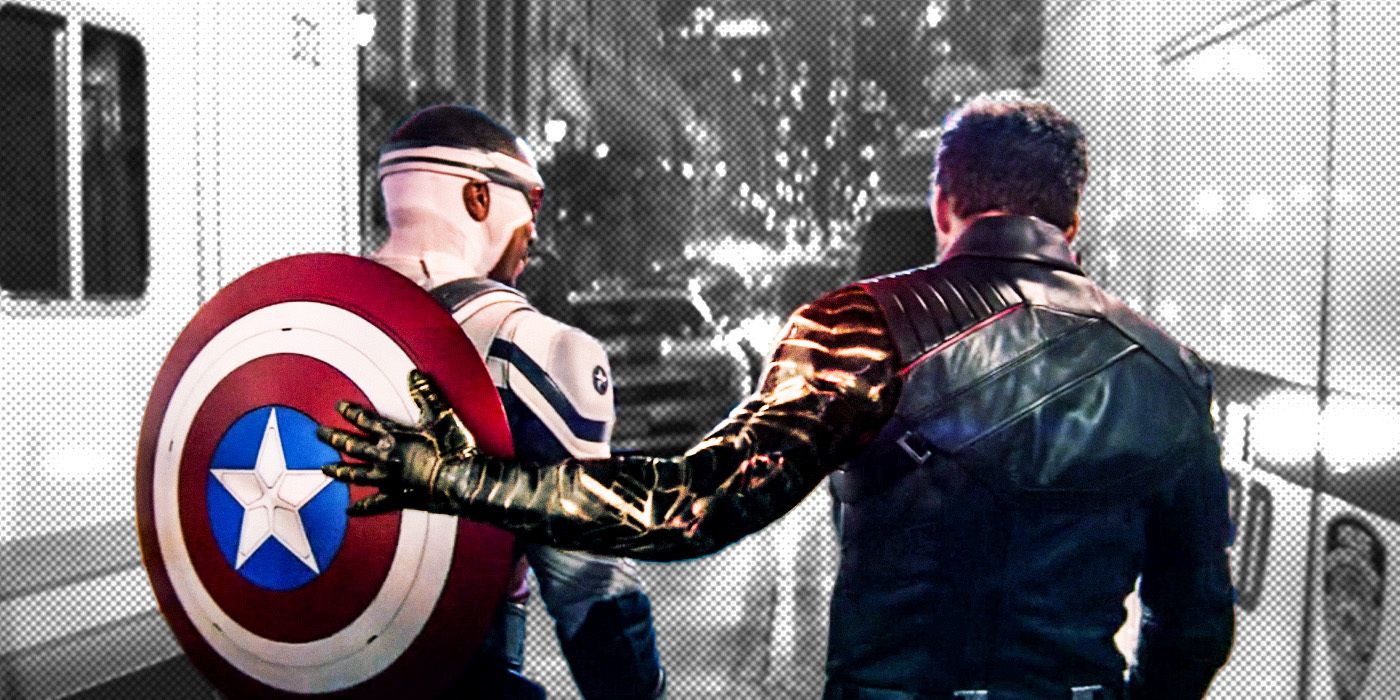WARNING: Spoilers for The Falcon and the Winter Soldier.
The Captain America movies were always highlights in the Marvel Cinematic Universe, so how has The Falcon and the Winter Soldier managed to so disappoint? The second MCU Disney+ show, hot on the heels of theory-busting WandaVision, may well be the worst story that Marvel Studios has told, a poorly-paced mess of good ideas squandered. It's a level of unrefinement that audiences are simply not used to following that rousing logo.
When Marvel announced its MCU Disney+ release slate, The Falcon and the Winter Soldier seemed like the safest slam-dunk. It was a de-facto Captain America 4 taking two of the MCU's most popular side-characters and putting them center stage, building out the comic character's expanded cast to include more complicated super soldiers. Add in a chance to explore the global impact of The Blip caused by Thanos in Avengers: Infinity War (which gained increased weight thanks to the parallels with the COVID-19 pandemic), it looked like an easy win.
And yet the end result manages to not only miss the mark, it takes the ideas that were so intriguing and turns them into weaknesses. What exactly happened on The Falcon and the Winter Soldier will likely remain a closely guarded secret (as is the case with most Disney releases) but in analyzing the end result, a clearer picture begins to emerge.
The Falcon and The Winter Soldier's Failure of Ideas vs. Execution
The Falcon and the Winter Soldier is not wanting for great ideas, nor ones that theoretically mesh together.
John Walker, the highly-decorated soldier anointed the new Captain America but slowly eroded into a villain, is a chance to hold a warped mirror up to Steve Rogers and critique the idea of a military-backed superhero. Isaiah Bradley, the forgotten lone survivor of a squad of Black Super Soldiers criminalized after state experimentation, is a biting commentary on real crimes of the US government in the 20th century that reflects on Sam's journey to taking up the shield. Baron Zemo wants to complete his masterplan to remove all Super Soldiers from the MCU, the rare case of a Marvel legacy villain who isn't motivated by Tony Stark's mistakes. And the Flag-Smashers, freedom fighters struggling to adapt to the new world and fighting back against unchecked bureaucracy, are right out of Marvel's "Villains Doing The Right Thing The Wrong Way" playbook. Together, each is a key vertex in a discussion on state-divined authority and accountability for actions.
That's before getting to the two titular characters. As Steve Rogers' chosen successor to the Captain America mantle, Sam Wilson is set on a tough journey of self-discovery in a world that would doubt him. Bucky is one of the MCU's most intriguing characters, a good man warped into a violent killer, but since the climactic fight of Captain America: Civil War has been a secondary participant in events; now he could directly atone for his sins. And together, despite no major comic-book precedent, the pairing of Steve's best friends offered traditional buddy cop comedy against the dramatic backdrop.
All of those aspects are present in The Falcon and the Winter Soldier, but none strike as they felt they should on paper. In the finale, John Walker is brought back from the edge to be an anti-hero. Isaiah Bradley is established in episode 2 before being absent for the next two hours, returning only when the narrative has caught up. Zemo is completely rewritten from Civil War, leaving memes in his wake. The Flag-Smashers are blandly conceived and highly ineffective in their moral allure. And the Tango and Cash backbone of Sam and Bucky is barely engaged with, lost in self-seriousness after the second hour. It's a lot of promises and references, with no payoff or realization.
There's a pacing argument to be made. Instead of embracing the inherent structure of television and having each episode tackle a specific idea while projecting the overarching narrative forward, The Falcon and the Winter Soldier was a brazen six-hour movie cut down into chunks. That needn't be a problem in itself (it's commonplace in Peak TV), but this was a hyper-speed show, rushing through episodes' worth of plot and associated themes in 5-minute blocks. A cliffhanger to the previous episode would be resolved in the pre-title setpiece of the next, before namechecking the half-dozen different plots without giving any one room to breathe.
That issue was present from The Falcon and the Winter Soldier premiere, and was exacerbated as the narrative thread between warehouse fights became increasingly tenuous, but over time it also became clear it was masking a bigger ideological block.
The Falcon and the Winter Soldier's Dangerous Messaging
Because The Falcon and the Winter Soldier's real villain is the system and circumstance (as Joaquin Torres actor Danny Ramirez iterated to Screen Rant), neither Walker nor Karli Morgenthau's Flag-Smashers nor Sharon Carter's Power Broker can ever be truly presented as the show's antagonist. They are symptoms of the nebulous real evil that exists in the everyday. However, in trying to humanize a state-sponsored murderer and an increasingly amoral terrorist to prove the point (and having a criminal mastermind be Steve Rogers' old flirtation), there's a distinct lack of accountability to anybody's actions.
The show's dramatic culmination is Sam Wilson, decked out in his Wakandan-made Captain America costume, telling the heads of the GRC that they need empathy for the world they are pretending to protect. From a storytelling standpoint, it's the epitome of telling not showing, having the main character spell out what the preceding six hours failed to effectively communicate. But while it is a good culmination of Sam's arc, the message is itself flawed. There's a respect paid to the broken institution that stops short of true healing. After chastising the US on live TV, the new Captain America is asked to go help finish the Flag-Smasher threat - which he does without question.
Nowhere is this messaging more actively dangerous than with John Walker. The new Captain America quickly became The Falcon and the Winter Soldier's most fascinating character. Here was someone who on paper held all the facets required to be Cap, but was driven by the wrong things instilled by his military past: where in Steve there was nobility, in Walker there was bravado; where there was a strive for truth, there was hunger for victory. He was a man who believed the ends justified the means, always. As such, when the mask came off, aided by the trait-enhancing Super Soldier serum, Walker revealed himself as a psychopathic soldier. The messaging, paired with Sam's wrestling over picking up the shield, was that the best the military could front didn't hold Cap's core values, and served as an indictment of that entire branch.
But that wasn't it at all. In the finale, Walker becomes an unambiguous hero, saving members of the GRC from Karli and getting nods of approval from both Sam and Bucky. It's a turn so unestablished, so unearned, so oblivious to the show's own messaging that it reframes the sense of anger it was trading in. It's an endorsement of the flagrant misreadings of The Falcon and the Winter Soldier episode 4's cliffhanger as "badass"; that a character's end state does justify their means taken to get there.
This is bad storytelling, especially when framed against the linkering collateral debate from Captain America: Civil War, but is made all the worse in the context of 2021. Marvel has got lucky with how its movies accidentally reflected real-world events and gained greater depth as a result. Captain America: The Winter Soldier's exploration of state surveillance was bolstered by Edward Snowden's NSA leaks and WandaVision's media embrace through grief was potent arriving in the middle of the COVID-19 pandemic. But to have a soldier brutally murder an innocent, only to be made OK by a single heroic action, smacks of insensitivity in a time when those in violent positions are being questioned for abuses of power.
The Falcon and the Winter Soldier Fails Its Characters
One of the assets of a shared universe is being able to tell stories with characters across multiple movies, and a specific bonus advantage of the Disney+ shows is the ability to hone in on those who've only been supporting players previously. This worked a treat with WandaVision, which not only deepened Scarlet Witch but gave Darcy and a grown-up Monica Rambeau a spotlight to shine in. The same is not true of The Falcon and the Winter Soldier, which manages to waste much of its pedigree by deferring to the bigger picture.
Aside from Sam Wilson, whose journey from burdened, financially struggling Avenger to new Captain America is developed across each episode, using his Louisiana backstory (something changed from the comics to further map the character to Anthony Mackie) to add depth to his decisions, the character choices in The Falcon and the Winter Soldier are perplexing.
There's a whole set of characters whose development feels not about the show at hand but where they're moving. Zemo is retconned considerably to be closer to his Baron comic counterpart; he's not a former soldier vengeful for his family, but a reverse Batman with schemes a-plenty, making for a witty Hannibal member of the Dark Avengers/Thunderbolts. Similar could be argued for the John Walker pullback, although simple character rehabilitation wasn't a prerequisite for turning him into US Agent; indeed, the questionable mystery around the team would have even been stronger had Walker been an unambiguous villain, rather than a reformed anti-hero.
More egregiously, Sharon Carter is now a villain. Why she's the Power Broker isn't really explained beyond the fact she was left adrift by the US government (and likes fine art), neither is the fact that Steve Rogers' almost-love interest was the closest the show had to an objective string-puller behind the series remotely addressed. It's a turn made for the sake of the next entry, evidenced by the post-credits scene, without any continuity to the (admittedly basically drawn) character from the Captain America movies.
Although nobody suffers quite like Bucky. He's a character it's felt like Marvel has struggled to place since he broke free of the Winter Soldier mind control, likely due to evolving plans; when it was decided Sam Wilson would succeed Steve Rogers, all the setup of Bucky Barnes taking up the shield (assumed the reason for Sebastian Stan's nine-movie deal) was left hanging, and it shows in the series which bears his name. Bucky's arc is letting go of the Winter Soldier, but what either side of his psyche really is isn't clearly defined, with changes to how the mysterious assassin was viewed and his role as an Avenger questioned. The main journey is shown in Bucky's relationship to the father of one of his victims, a sentimental subplot but one existing only in bookends and far from a nuanced development. The series doesn't even deign this change worthy of note when retitling the show Captain America and the Winter Soldier.
How Did The Falcon and the Winter Soldier End Up This Way?
With the issues of The Falcon and the Winter Soldier laid bare, there's still the question of how Marvel managed to deliver something that so misses the mark.
The impact of COVID-19 cannot be understated. When the pandemic first hit, The Falcon and the Winter Soldier was shooting in Prague, with still some weeks of filming left to go on the global production. This ended up happening mostly in Atlanta, Georgia, with a short return to the Czech Republic later in the year. The scale of the impact this had is unclear, but given that the show was delayed by seven months (and leapfrogged by WandaVision, which while also affected was more adaptable due to the nature of smaller scale and heavier CGI) it's likely there were some changes required. Rumors and reports of varying reliability hint at characters intended to appear who were cut, or other key players added in later in the day.
At the least, the show has a consistent, heavy reliance on character exchanges on phones, major events watched on TV, tightly blocked interior fights and other creative decisions that could well be a result of pandemic attrition; situations that accommodate filming restrictions and actors' limited schedules. If that reflects in the filmmaking, it surely had an impact on story choices too.
But to blame everything on the coronavirus would be unfair to the show. Choices like John Walker's redemption aren't mandated by shooting deadlines; they're conscious decisions.
It may be a case of Marvel biting off more than it could chew. Thematically, The Falcon and the Winter Soldier is high-reaching, and stylistically it's aiming for a genre that is built on high technical competency; a degree beyond broadly recreating sitcom eras. Marvel films have attained this before, but usually under the eye of A-list directors like Ryan Coogler or the Russo Brothers. Add in the inherent differences of TV as a medium to film, even while the studio treats the Disney+ shows as longer movies, and it's easy to see how cracks can appear.

